Doctors' Day 2024: Drs. Gundlapalli, Silevany and the Vaughans
An amateur DJ. A human rights activist. A diehard Wolverine and an outdoorsman.
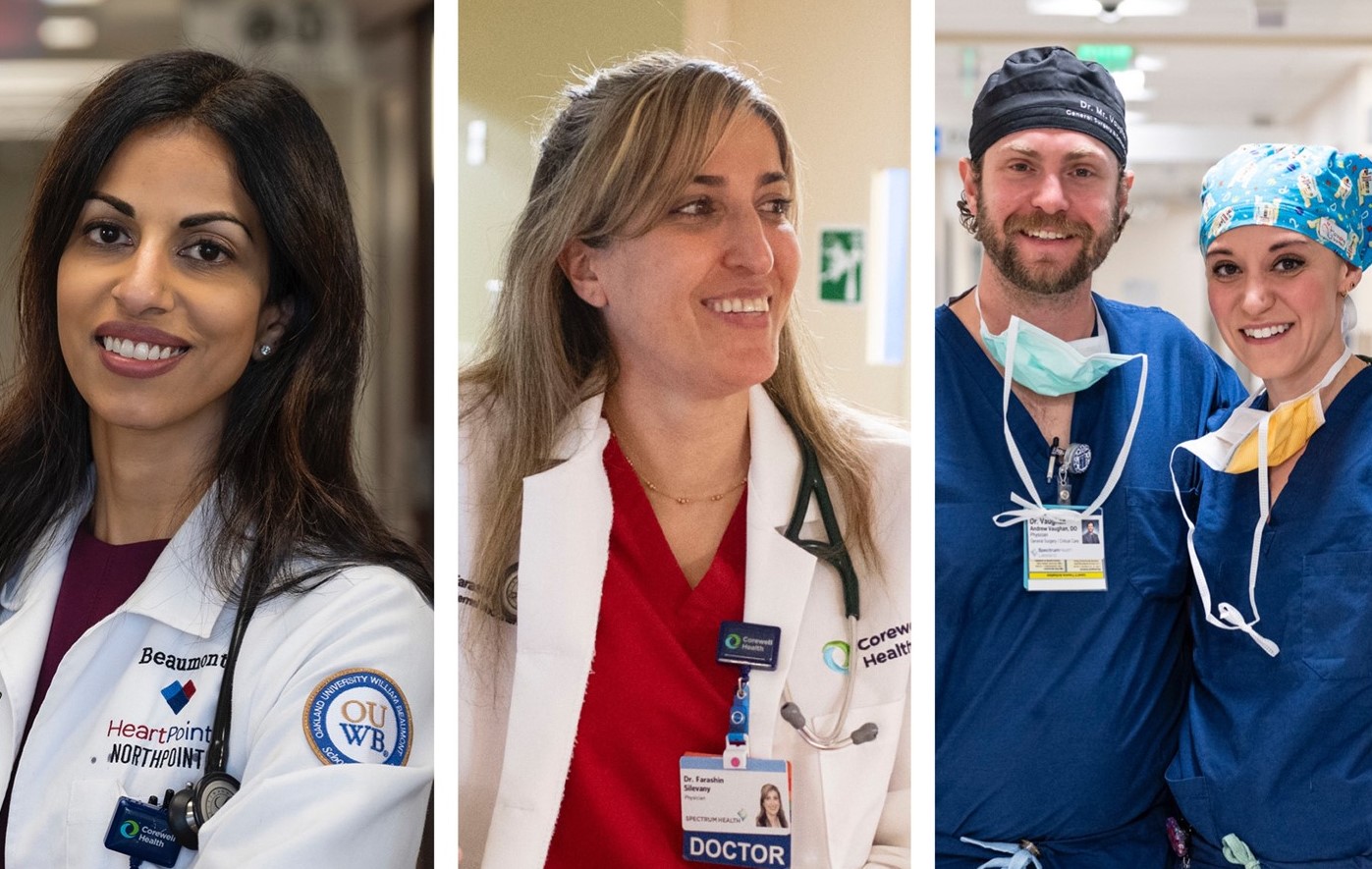
These are things you might not know about Drs. Sujana Gundlapalli, Farashin Silevany and Allison and Andrew Vaughan. They are all amazing doctors, but behind their credentials, they're loving family members, community members and more.
This year leading up to Doctors' Day on March 30, we're focusing on “Celebrating our shared humanity.” We're learning and sharing more about our doctors outside of work — what they're passionate about, their hobbies and the things that join us together. Learn more about four of our doctors below and join us in thanking them, and all our doctors, for all the passion and dedication they pour into their profession.
Read more doctors' stories on our Doctors' Day Well page.
Dr. Sujana Gundlapalli considers empathy and mental health critical for patient care and heart health
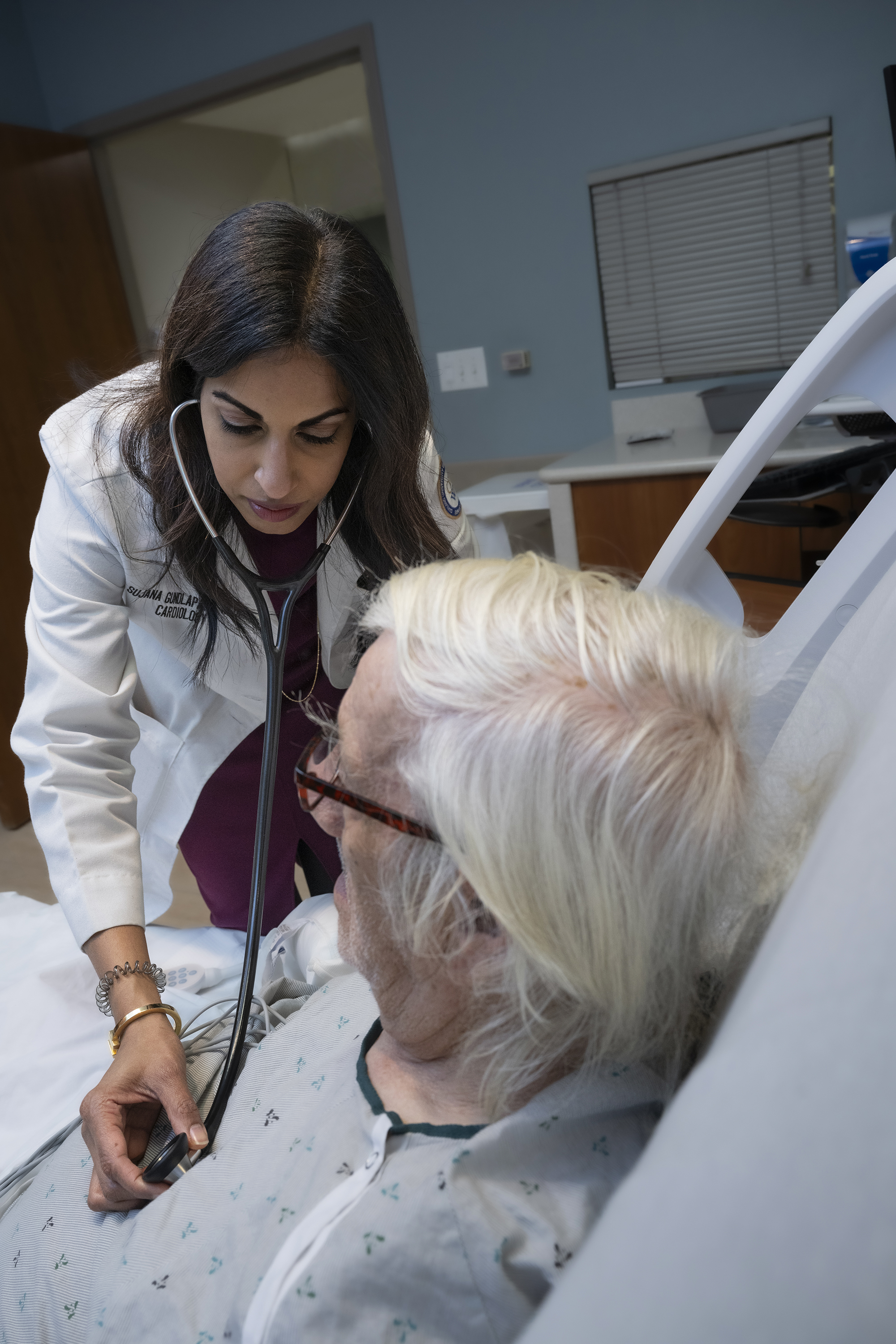
For a period of time in college, Sujana Gundlapalli, M.D., a cardiologist at Corewell Health William Beaumont University Hospital, was an English major. She has a love of language, philosophy and law, and explored those interests while at the University of Michigan, alongside the science classes she was also taking. Ultimately, she stuck with pre-med at U-M, and then graduated from the University of Chicago Pritzker School of Medicine. The rest, as they say, is history.
“I think you gain empathy when you read books and learn about people’s stories,” she said of her still active passion for literature, arts, theatre and movies. “But (with medicine), you can execute what you know and really touch lives by providing people with that empathy when they need it the most. You can do something in a tangible way. You have a window into their lives, sometimes in their darkest days, but you have a chance to make a positive impact within that space. It’s what really drew me in.”
Cardiology became her focus, and not just because of the influence of her father, who recently retired after a long, successful career as a cardiologist.
“I love the scope and the breadth of the subject matter,” she said. “I’m also a fast thinker — I enjoy thinking on my feet and acting accordingly. I relish being under pressure to make crucial decisions that can be lifesaving in a matter of minutes. And there’s so much to know and continually learn. Cardiology is an ever-evolving field. The main thing is that we can not only make a diagnosis but fix things. People come in with a problem and we can really get them better and save lives.”
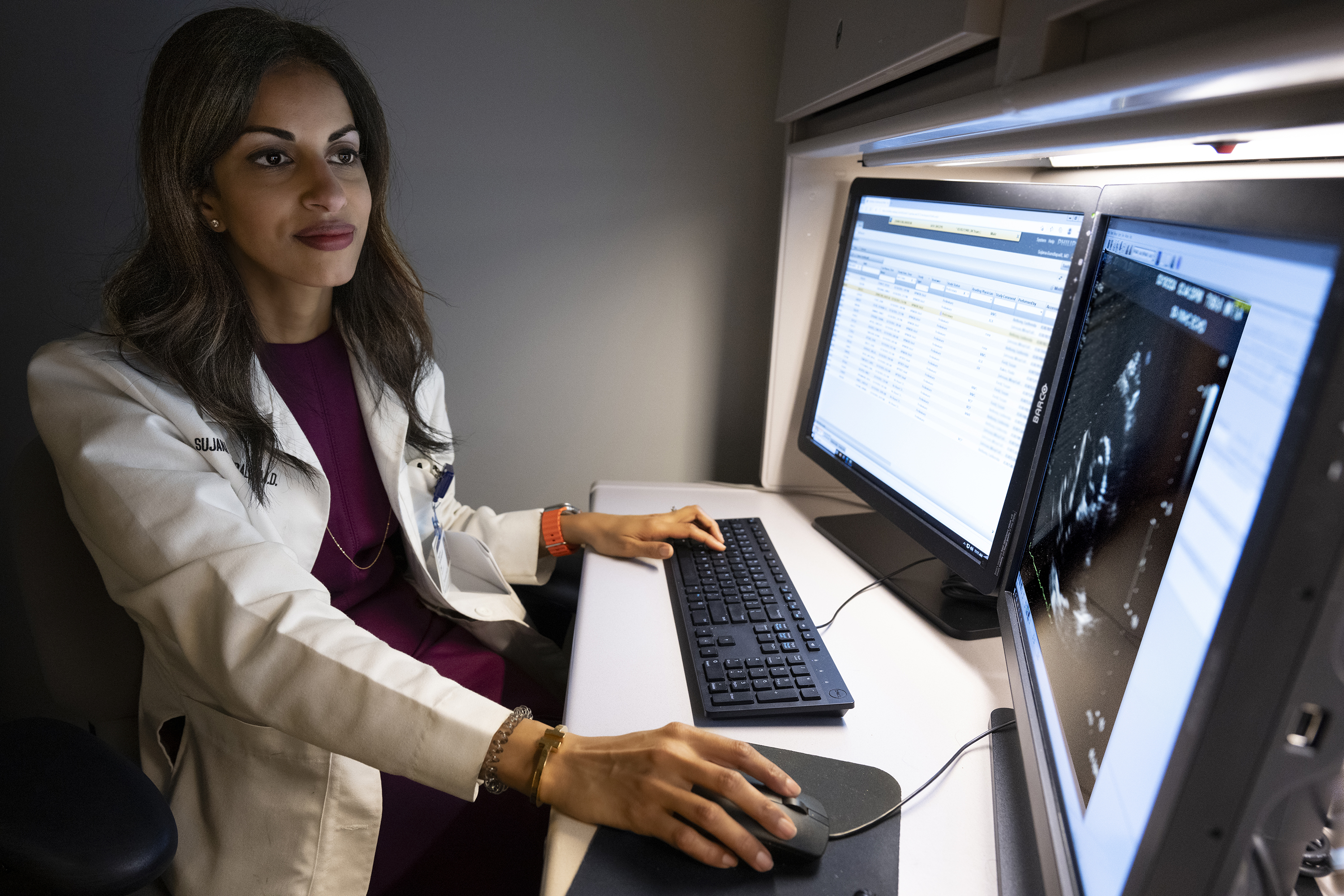
She’s also driven by the bigger picture — both figuratively and quite literally.
“Heart health is such a big problem for our country,” Dr. Gundlapalli said. “There’s so much research in it. The technologies and tools we use are constantly becoming more effective and sophisticated. I like that I know ‘this’ is what I’m supposed to do and it’s going to work because it’s backed by research and data. I also gravitate toward imaging — reading echocardiograms, nuclear stress tests, EKGs, which really sharpen my pattern recognition skills. I enjoy all of that.”
She’s been practicing medicine for 14 years, and an important aspect of her work is prioritizing mental health with all of her patients.
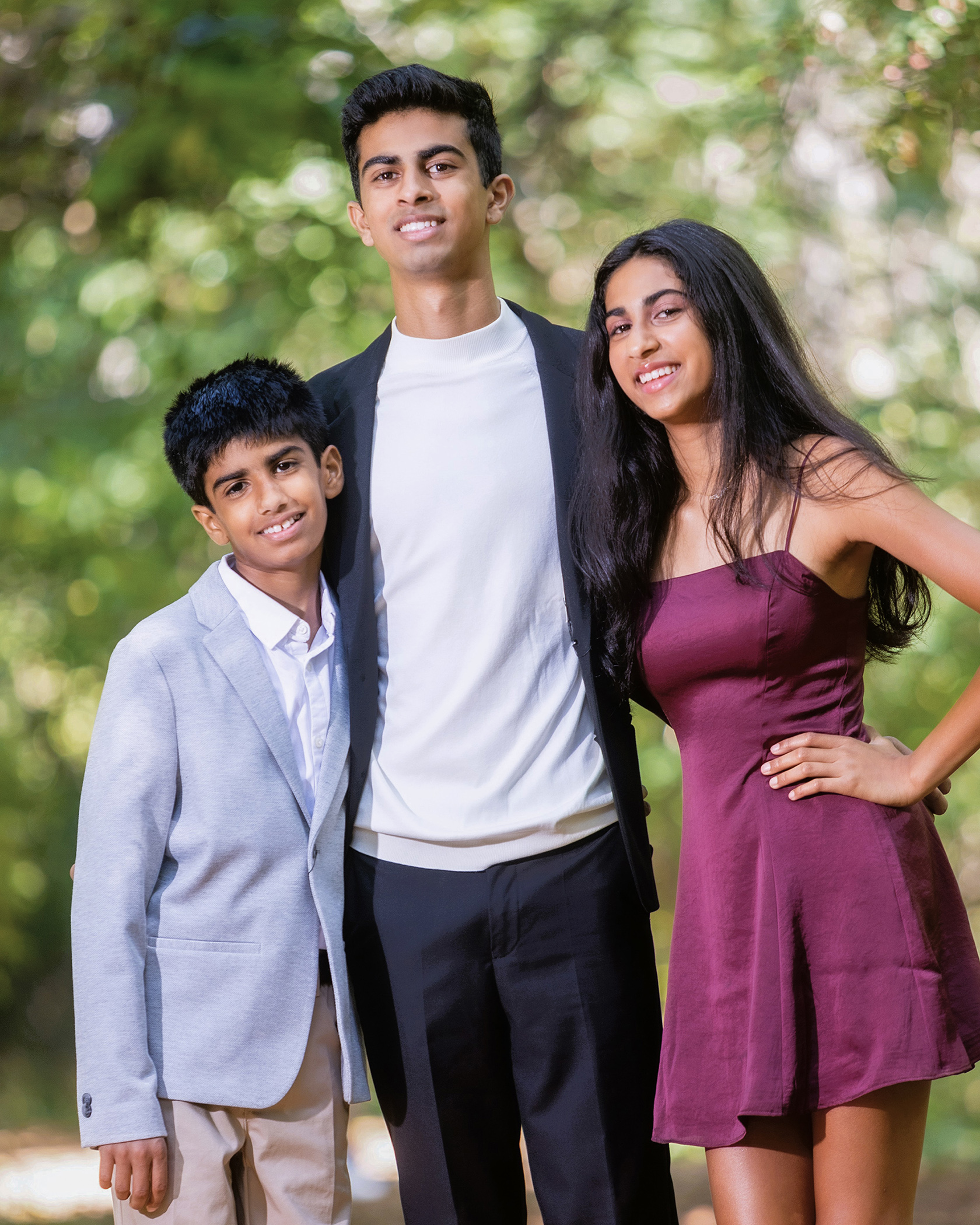
“The guidance and treatment I provide are only as successful as the patient’s self-awareness is,” Dr. Gundlapalli explained. “If you’re not aware of your own mental health and you’re not taking care of it at some level, it’s hard to implement the things we talk about in heart health. They overlap, they go hand in hand, along with exercise, diet and sleep — I see so many people in the hospital suffering because they’re lacking the awareness to prioritize these habits. Some of it is because of lack of access, education, or not having the support of family or community. But I see it missing in some of my sickest patients. We have the knowledge to help the patients, but we also need other tools to really succeed.”
She often utilizes other services within the health system to assist her patients, such as the hospital chaplain, nutrition and heart failure teaching services.
“I try to figure out what’s important to them, whether it’s faith, facts or family,” she said. “It’s taken years of practice to really understand how important mental health services are — alongside which medications to use, which test to run, these soft skills and communication can improve patient outcomes. I have seen it work wonders firsthand.”
Outside of work, Dr. Gundlapalli is a mom of three and lives in Birmingham with her husband, Dipak Shah, M.D., an electrophysiologist, and their 9-pound Shichonpoo, Luna.
Dr. Farashin Silevany’s immigrant, humanitarian journey
For the first 17 years of her life, Farashin Silevany, D.O., lived in what she describes as a war zone and conflict region.
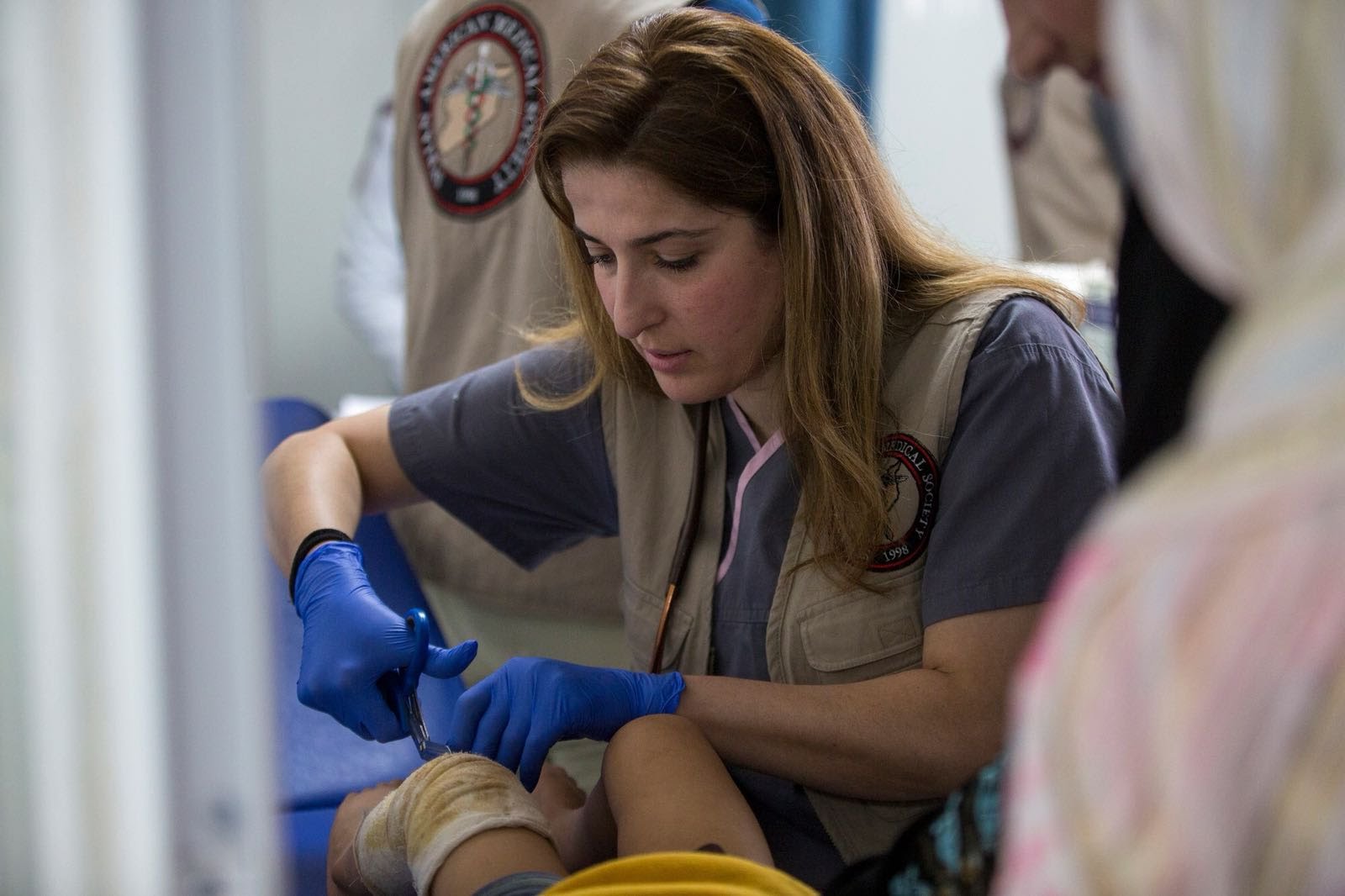
At 17, she, her parents and four siblings left the Kurdistan region of Iraq due to safety concerns. When they ultimately made it to the U.S., Dr. Silevany saw the move as a chance to eventually help people worldwide.
“I see myself as an immigrant who God gave the opportunity to be in a country with a lot of resources and access and opportunities,” she said. “That made me appreciate the fact that I had this opportunity to become a humanitarian and help people on a larger scale, not just in my community in Michigan, but an international level.”
And she’s taken full advantage of that opportunity. Dr. Silevany has done humanitarian work in Nicaragua, Costa Rica, Puerto Rico, Colombia, Iraq, Palestine, Jordan and Yemen.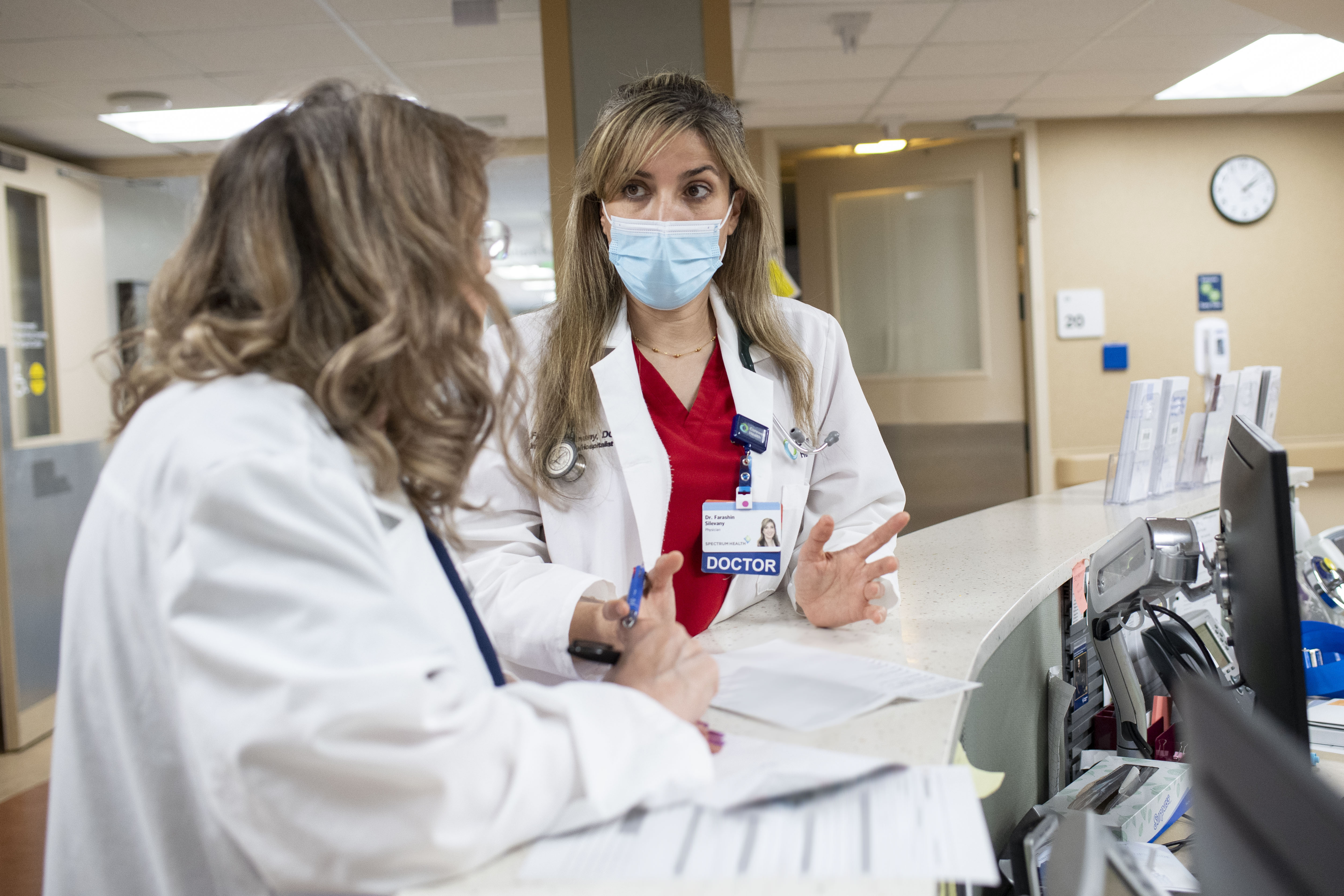
In fact, her start date with Corewell Health was delayed because she was overseas, helping earthquake victims in Syria and Turkey after a powerful earthquake struck on Feb. 6, 2023. Her leadership was patient — they understood Dr. Silevany’s humanitarian work is part of who she is.
“My entire team finds her so inspirational!” said Beth Makowski, D.O., division chief, acute care medicine, Butterworth Hospital.
Dr. Silevany always knew she wanted to help others. Initially, she wanted to be a journalist, travel the world and cover humanitarian crises. But then she took a bio physiology course in high school and discovered the amazing cardiovascular system.
“If I become a doctor, I can do better,” Dr. Silevany recalled thinking. “I can help more people.”
It wasn’t an easy path. Fluent in Kurdish and Arabic, she dedicated herself to learning English, reading 74 novels one year during college to get a better grasp of the language.
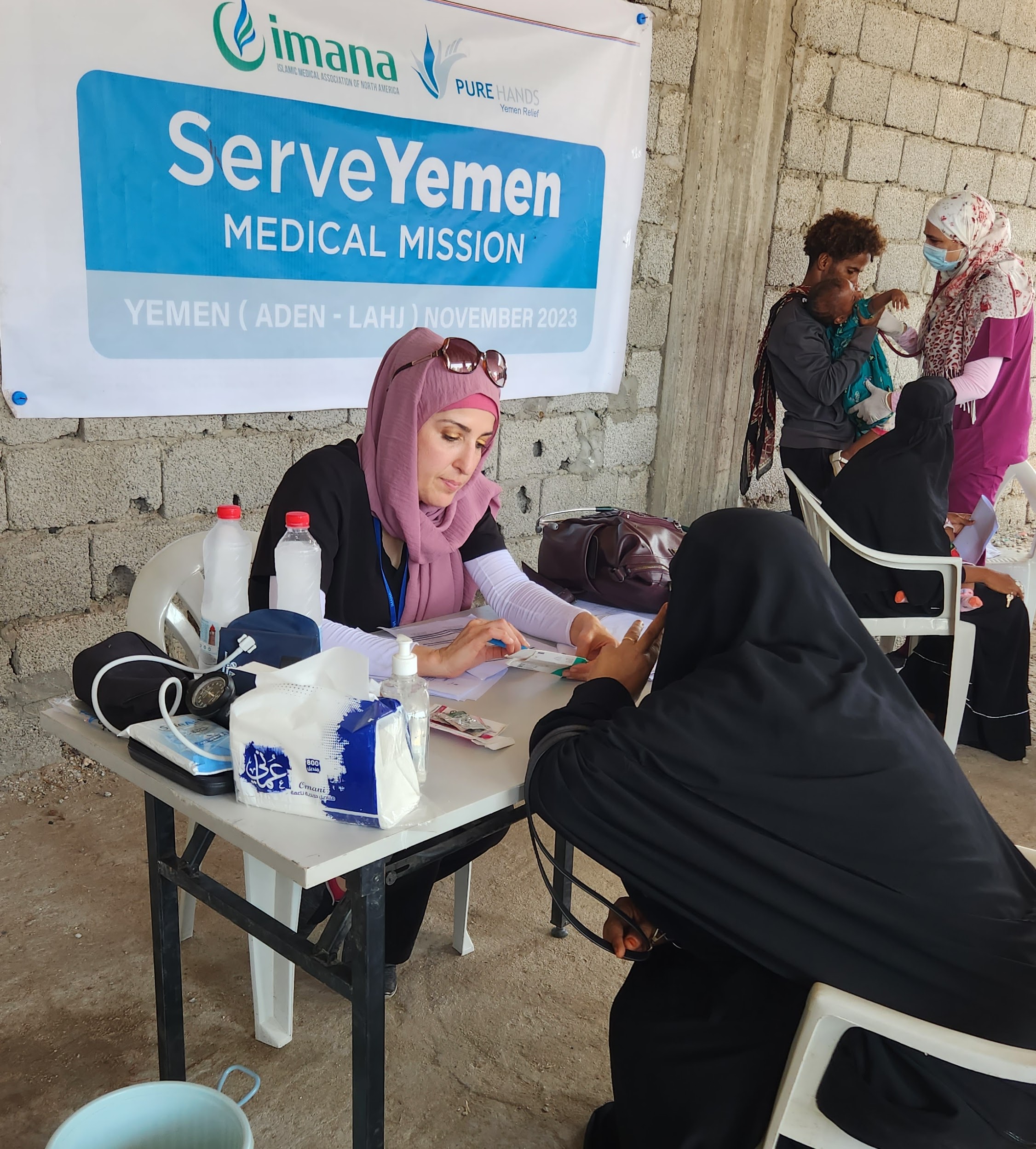
“It was a challenge, taking the MCAT and the language barriers,” she said. “But hey, I made it.”
Thank goodness she did, because she often uses her basic medical skills to treat patients in other countries. She has to figure out how to check a fractured femur without an X-ray or how to treat illness when she can’t access the kinds of resources she has through Corewell Health.
Dr. Silevany often works in refugee camps, and seeing the disparity can be hard. When she went to Bangladesh during the Rohingya crisis during residency, she saw hundreds of people standing in water, waiting to be allowed into the country in dangerous heat.
Just having a meal or taking a shower after seeing so many people without food and fresh water is hard.
Financially, physically, mentally, humanitarian work is challenging. But when Dr. Silevany meets patients so happy to see her traveling all the way from the U.S. to help them, they have so much joy, trust and appreciation.
“It makes up for all the struggle,” she said. “It’s totally worth it.”
Trust is critical for married Corewell Health surgeons Drs. Allison and Andrew Vaughan
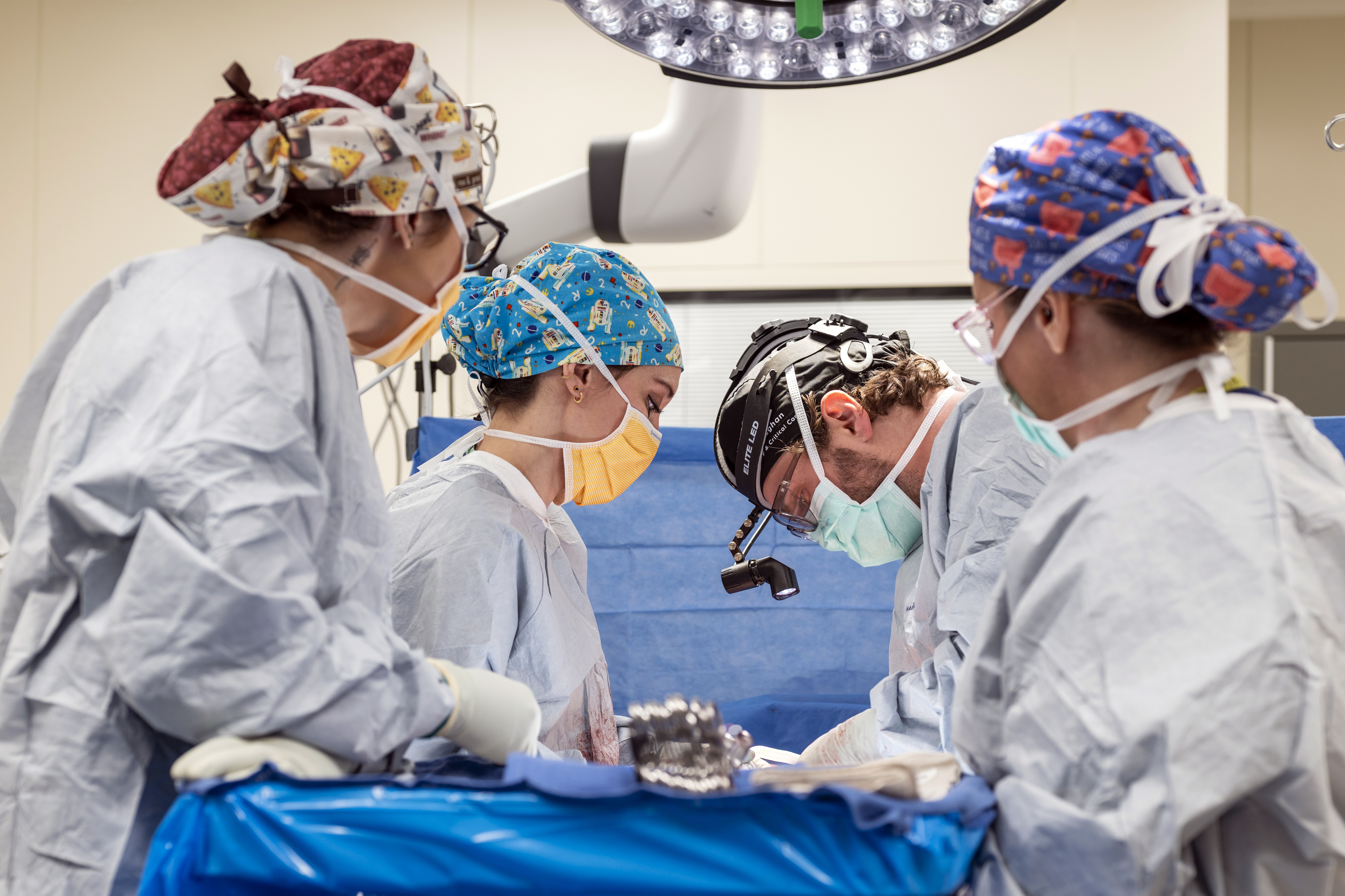
They say don’t mix business with pleasure, but for Allison Vaughan, D.O., and Andrew Vaughan, D.O., it was the work environment and their shared passion for surgery that brought them together and keeps their relationship strong.
The general and trauma surgeons at Corewell Health Lakeland Hospitals - St. Joseph Hospital, met during their residency at Corewell Health's Beaumont Hospital, Farmington Hills. They fell in love during perhaps the most stressful and intense time of a physician’s career, got married, and started a family together, all while working side-by-side in the OR — and they wouldn’t have it any other way.
“He’s the person I want to work alongside,” Dr. Allison Vaughan said of her husband. “We joke that we get to spend the most time together in the operating room. We love working together; he’s the first person I would call. We understand each other, and we have an amazing support system in and out of work.”
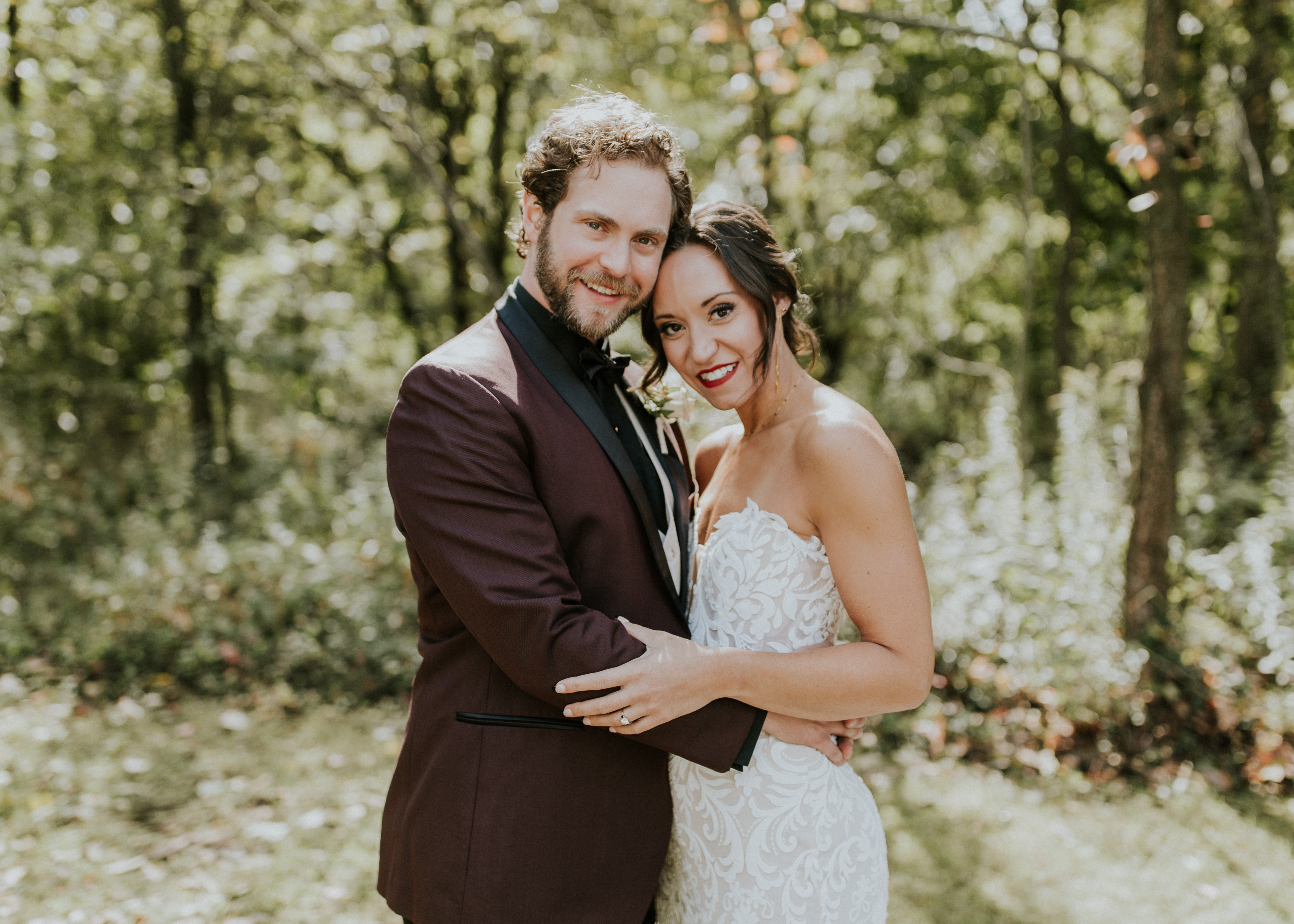
“We’ve always communicated well with one another,” Dr. Andrew Vaughan agreed. “We know how each of us thinks about things. We’re both willing to challenge the other but in a very respectful way, even in the operating room in front of other people. I’ve heard that people like it when we’re working together. I enjoy it because I think things go smoother and more quickly. There’s a lot of trust. You don’t have to explicitly say everything you want because the other person understands.”
Dr. Allison Vaughan grew up in Traverse City and graduated from the University of Michigan and the Michigan State University College of Osteopathic Medicine. She completed her general surgery residency at Corewell Health's Beaumont Hospital, Farmington Hills, and a surgical critical care fellowship at Corewell Health William Beaumont University Hospital.
Dr. Andrew Vaughan graduated from Colorado State University and the Rocky Vista University School of Osteopathic Medicine in Colorado. He completed his general surgery residency in Farmington Hills and a surgical critical care fellowship at Corewell Health Grand Rapids Hospitals - Butterworth Hospital, both through Michigan State University.
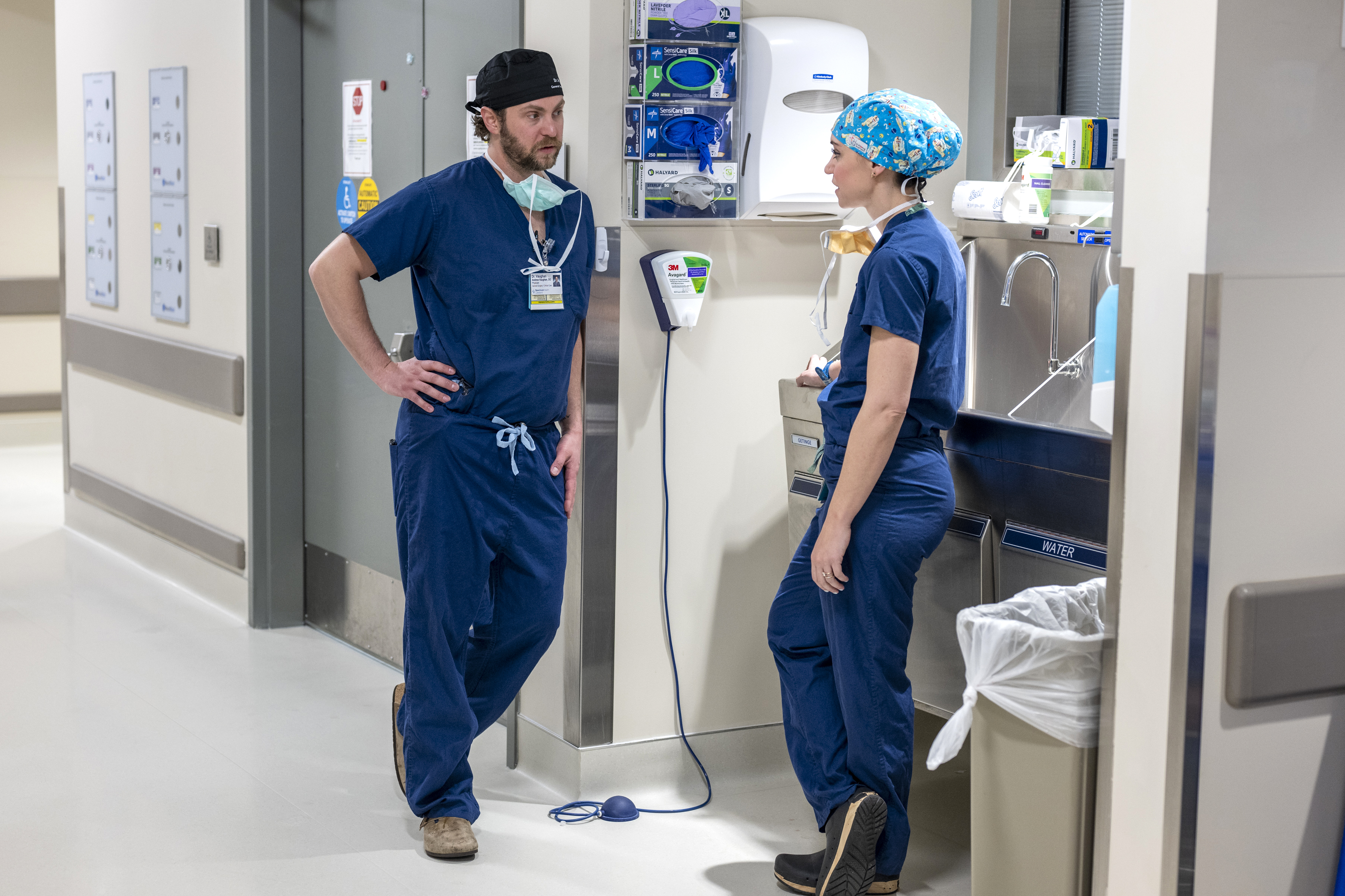
Science was always Dr. Allison Vaughan’s favorite subject growing up, and she was particularly fascinated by anatomy, physiology and the body’s form and function. She worked as an athletic trainer with the sports teams in high school and considered going into physical therapy before setting her sights on medical school.
Dr. Andrew Vaughan was passionate about health, fitness and the outdoors while growing up in the mountains of Colorado. He considered exercise science and then biomedical sciences before deciding medical school was the path for him. He enjoyed studying internal medicine and the “global control” you can have over a patient as a whole, but when he started his surgical rotation, he was immediately sold.
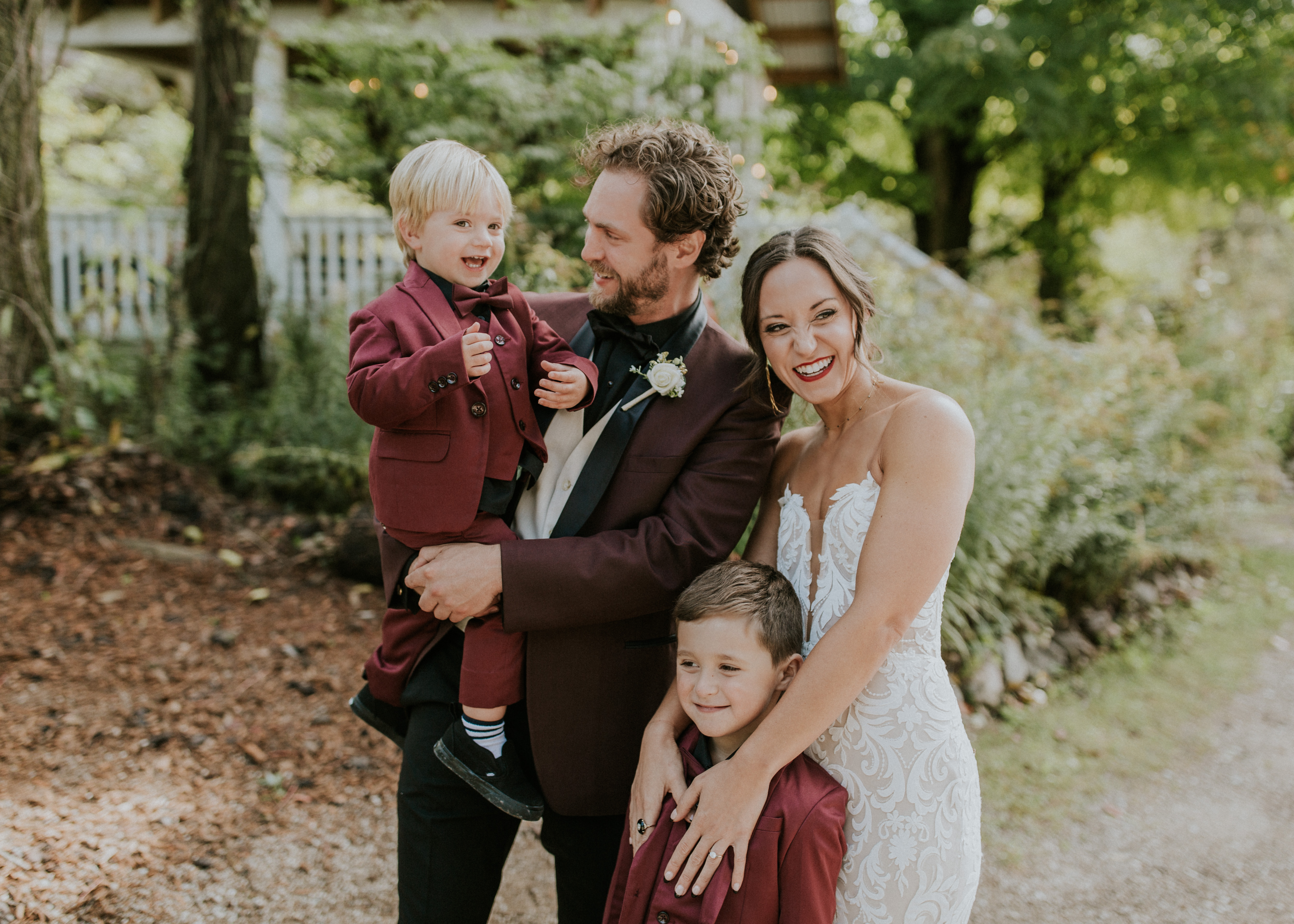
“By the end of the first week, I said, ‘I’m going to be a surgeon,’” he said. “The fact that it can be calm or spike into chaos at any moment, for me, it’s something I can handle. It’s not overwhelming for me.”
The whole-patient approach is still important to Dr. Andrew Vaughan, even when treating a critical care patient.
“I like to pay attention more globally of what is happening,” he explained. “I want to make sure that not just the post-operative plan is going well, but the whole patient. And you do get a satisfaction the majority of the time that you immediately helped a person.”
The couple lives in St. Joseph with their 2-year-old son, a 6-year-old son from Allison’s previous marriage and a 3-year-old pitbull mix named Remi.